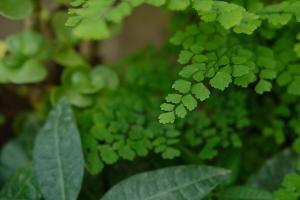Can You Plant Fruit Trees in Reclaimed Water?
As our world continues to struggle with water scarcity, more and more people are turning to reclaimed water as a solution. Reclaimed water is wastewater that has been treated to remove impurities and is safe for non-potable uses such as landscaping and irrigation. However, many people wonder whether it is safe to use reclaimed water for planting fruit trees. In this article, we will explore the benefits and risks of planting fruit trees in reclaimed water.
Benefits of Using Reclaimed Water for Fruit Trees
Using reclaimed water for planting fruit trees can have several benefits. Firstly, reclaimed water is cost-effective and can help reduce water bills. Fruit trees require a lot of water, and using reclaimed water can help save money on irrigation costs. Secondly, using reclaimed water reduces the demand for freshwater resources, which are becoming increasingly scarce in many parts of the world. By using reclaimed water for planting fruit trees, you are contributing to the conservation of freshwater resources.
Risks of Using Reclaimed Water for Fruit Trees
While using reclaimed water for planting fruit trees has its benefits, it also comes with several risks. Firstly, reclaimed water may contain high levels of salts, nutrients, and toxic chemicals that can negatively impact tree growth and fruit quality. Secondly, groundwater contamination can occur due to the use of reclaimed water. Studies have shown that some contaminants can leach through the soil and reach the groundwater, affecting both drinking and irrigation water quality. Finally, there are potential health risks associated with the consumption of fruits grown with reclaimed water. While treated reclaimed water is safe for irrigation, it may not be safe for human consumption.
How to Mitigate Risks of Using Reclaimed Water for Fruit Trees
Despite the risks associated with using reclaimed water for planting fruit trees, there are ways to mitigate them. Firstly, growers can use low-salt reclaimed water and apply it in recommended quantities. Secondly, growers can monitor soil salinity levels and apply soil amendments to reduce the impacts of salt accumulation. Furthermore, growers can choose fruit tree varieties that are more salt-tolerant. Finally, growers can limit the use of reclaimed water during fruit bearable stages to reduce the risk of contamination.
Conclusion
While using reclaimed water for planting fruit trees may come with its fair share of risks, it is still a viable option in the face of water scarcity. By utilizing reclaimed water, growers can save money on water bills and conserve freshwater resources. However, it is crucial to take the necessary precautions to mitigate potential risks and ensure the safety of our water resources and health.

 how many times do yo...
how many times do yo... how many planted tre...
how many planted tre... how many pine trees ...
how many pine trees ... how many pecan trees...
how many pecan trees... how many plants comp...
how many plants comp... how many plants can ...
how many plants can ... how many plants and ...
how many plants and ... how many pepper plan...
how many pepper plan...































